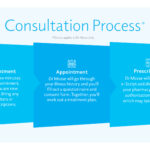You often hear doctors talking about your health and well- being, I’ll digress a little bit today, given that it’s the beginning of another school term under ‘Rona, I’ll share something with you about learning and exam.
I was once an ordinary student in an ordinary school, with one teacher asking me, “What’s wrong with you? Why are you so different from your brother (now a Professor, was a teacher’s pet back then)?”, that was from the PE teacher, if a kid couldn’t follow instructions in PE, imagine what he would have been like in other classes. Every teacher went on about their own subject matters, but no one ever taught us how to learn, until I hang out with some brighter kids later on in Year 9, maybe it’s also the time the male hormones kicked in and my school grades began to pick up. I feel that some of you may benefit from the advice I got from these cool kids, and I think they are still relevant after six years of medical school and post graduate training. The first article will focus on what an average student can do to up your game, will there be a second article? We’ll see.
First and foremost, the opinions expressed in this article are mine and they do not represent the views of the government organization that I work for.
Learning
Learning is mostly fun, practicing in always hard. It’s fun to play soccer at recreational level but it took David Beckham hundreds of hours to learn how to score the goal when it’s virtually impossible for others to do so. “Amateurs practice until they can pass; professionals practice until they can‘t fail”. Regardless of what you are learning, whether it’s sports or your good old calculus, you’ll need to “embrace the suck“, military term for putting up with the hardship/ unpleasant experience and crack on. I used to go onto long distance hikes, somewhat in excess of 50km in the late summer heat, days before the beginning of the school year as part of mental endurance training, have you ever heard of the saying “the only easy day was yesterday”?
Learning to be an efficient learner can save you a lot of time. If Sir Isaac Newton didn’t procrastinate under the tree, the apple would have never hit his head. Most of us like to procrastinate because we are lost and don’t know where to start again, especially when there’s an overwhelming amount of work that needs to be done, with various deadlines. We have all been in this situation, before you start pulling your hair out, spend 10 minutes writing down a “to-do list” on a piece of paper with deadlines and a box next to it, check the box when the task is completed. Add P1 (priority one), P2 etc to signify the urgency of the task. Also add your task list on the calendar so you can plan your schedule ahead, e.g. on Feb 13, 2021, get a box of chocolate/ bunch of flowers and hide them somewhere. Most surprises or co-incidences are planned.
It brings us to the point of time management, we are all born equal in the sense that everybody in your class got 24 hours a day, top students in the class are usually the ones with multiple commitments on top of their academic duties. It’s all about planning and fitting in small tasks (writing emails etc) during your lunch break/ transport to and from school, such that you can get more done in 24 hours. The key here is motivation, for most students, it means some form of quick rewards such as video- gaming time, see it’s a privilege, not a kind of right.

Exams
Why are we talking about exam on day one of the school term? I don’t like exams, many of you would agree. Having said that, exam result is an objective and measurable outcome, or Key Performance Index (KPI), and it’s a good way to see whether you’re learning strategies have been effective.
Writing notes is great, if you don’t have time, highlight the key points in your book, make sure you identify the high yield topics and know them back to front. For example, in modern history, similarities/ differences between Italian and German unification will be in your exam somewhere.
If you are too lazy to write note/ highlight the key points in your textbook, photocopy notes from your buddy who’s willing to share, or look for someone else’s note on Google. You are likely to find something because there are students around the world studying the same topic, a potentially dangerous move, check the facts and quality of note before you use it.
If there’s a topic you need some clarification on, look it up on Google/ duckduckgo/ Youtube, plenty of teachers are kind enough to share their powerpoints even recorded lectures online for your reference, try Roman Achitecture, Yale.
Revision, aka cramming, involves a fair bit of memorization. Best way to do it is to challenge yourself by writing down your key answers. The mediocre students, including myself in junior high school, did the revision by purposelessly browsing through the textbook, which was inefficient because it doesn’t reinforce the memorization effectively. Some use the flash cards to reinforce links (e.g. color of flame from burning copper = bluish-green, calcium= orange- red). Also make use of tables, charts, diagrams to commit them to your short-term memory, that’s all you need.
As the Pilot Officers often said, “Prior preparation prevents poor performance”, or 5Ps. The day before your exam, take some time to double check the logistics such as exam schedule and venues, arrange transport if needed. Visually checked all stationaries you need are in your school bag. We need to talk about pens, your primary writing tool in paper-based exams, make sure that your pen is light and ergonomic, get the pens that allow you to write fast, definitely not the ones with accessories dangling from top making noises when you write.
Some chew sugar pills such as Cola jellybean during the exam, theory behind that being sugar is the only form of carbohydrate that your brain can utilize, apart from Ketones, which could potentially keep the brain sharp and alert (military term= stay frosty), however there isn’t much evidence in the medical literature to support this and I suspect it’s likely placebo. The alternative is to go to the head (loo)/ take a tactical leak if you are confident that you can complete the exam on time, leaving your seat does give you a mental break and rinsing your face with cold water may refresh your brain a little bit, although it’s all subjective.
Written by
Dr Armand Edison






